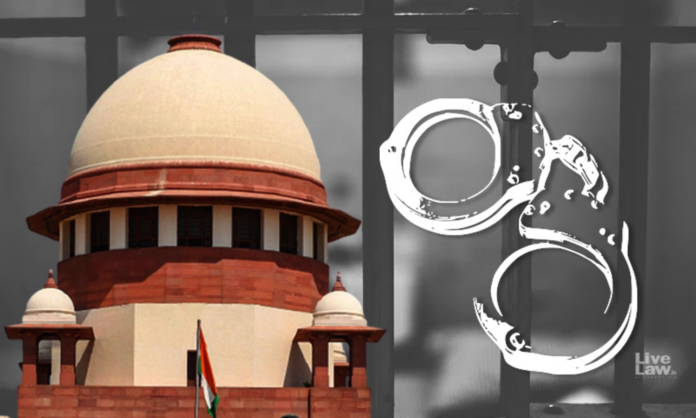The Supreme Court of India recently granted bail to a man accused of rape and issuing threats using the name of infamous gangster Lawrence Bishnoi. The decision has sparked nationwide debate, raising questions about judicial processes, the handling of sensitive cases, and the integrity of law enforcement. The accused’s defense presented evidence, including WhatsApp chats and call logs between the complainant and a senior police officer, casting doubt on the veracity of the allegations and adding layers of complexity to the case.

Case Overview and Claims
The case began with serious charges against the accused, including allegations of rape and threatening the complainant with connections to Lawrence Bishnoi. The complainant alleged that the accused used Bishnoi’s name to intimidate her, creating a climate of fear. However, the accused’s defense presented a contrasting narrative:
- Claim of Consensual Relationship: The accused asserted that he and the complainant had been in a consensual live-in relationship.
- Evidence Against the Complainant: To back his claims, the accused submitted WhatsApp chats and call logs allegedly showing that the complainant was in a relationship with a senior police officer after their separation.
- Fabrication of Threats: The defense argued that the threats allegedly made in Bishnoi’s name were fabricated to frame the accused.
The accused’s legal team highlighted the complainant’s ties with a senior SP-level police officer, claiming these relationships influenced the case and undermined its credibility.

Supreme Court’s Observations and Bail Decision
While granting bail, the Supreme Court emphasized the importance of maintaining a fair trial process and thoroughly investigating all aspects of the case. Key factors influencing the bail decision included:
- Conflicting Evidence: The WhatsApp chats and call logs introduced by the accused raised significant doubts about the complainant’s allegations.
- Questionable Motives: The involvement of a senior police officer in the complainant’s life cast shadows over the case’s integrity, necessitating further scrutiny.
- Presumption of Innocence: The court underscored that bail does not signify innocence or guilt but is a safeguard to ensure the accused’s rights during the trial.
The bench also highlighted the complexity of the case, noting that the allegations intertwined personal relationships, legal claims, and alleged misuse of power.
Public and Legal Reactions
The Supreme Court’s verdict has polarized public opinion and triggered intense discussions across legal, social, and media circles.
Support for the Verdict
Some legal experts and commentators have backed the court’s decision, citing the necessity of examining all evidence impartially. They argue that the case’s complicated nature warranted granting bail to avoid pre-trial imprisonment based on potentially unreliable allegations.
Concerns from Women’s Rights Groups
Activists and women’s rights organizations have expressed concern over the implications of this verdict. They fear it could set a precedent that might discourage genuine survivors of sexual violence from coming forward, fearing similar counterclaims and public scrutiny.
Demand for Police Accountability
The involvement of a senior police officer in the complainant’s life has raised serious questions about ethical standards within law enforcement. Activists and legal experts have called for stricter oversight and mechanisms to ensure impartiality in cases involving powerful individuals.
Broader Implications
The case serves as a microcosm of the challenges India’s criminal justice system faces, especially in cases involving high-profile individuals, personal relationships, and claims of corruption.
- Judicial Integrity and Vigilance: The verdict underscores the importance of courts carefully examining evidence to uphold justice. A hasty conclusion could compromise the rights of either party, making a meticulous approach essential.
- Impact on Survivors: The case highlights the need for judicial sensitivity in handling sexual violence allegations to protect survivors from potential backlash or harassment.
- Law Enforcement Ethics: The alleged involvement of a senior police officer in this case has reignited debates on the need for accountability and reform within India’s law enforcement agencies.
The Supreme Court’s decision to grant bail in this case sheds light on the intricacies of India’s legal system. It emphasizes the balance courts must strike between protecting the rights of the accused and ensuring justice for the complainant. The case also highlights deeper systemic issues, such as police integrity, the impact of personal vendettas, and the importance of safeguarding the sanctity of judicial processes. This incident is a stark reminder of the need for reforms and accountability to uphold trust in India’s justice system.

